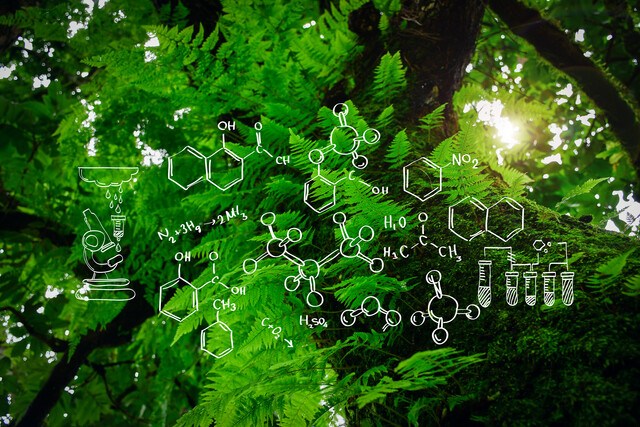Online Class: Marine Biology 101

no certificate
with CEU Certificate*
-
17Lessons
-
32Exams &
Assignments -
3,304Students
have taken this course -
9Hours
average time -
0.9CEUs
Course Description
Imagine a world where every ripple narrates a tale of survival, where life unfolds in complex, colorful pageants beneath azure waves, and where tomorrow's mysteries invite today's explorers. Welcome to "Dive into the Depths: Exploring the World of Marine Biology"--where the vast ocean becomes your classroom and its many wonders your teachers.
The ocean is not just a body of water; it is the heartbeat of our planet. It breathes, it nurtures, and it inspires. Covering over 70% of the Earth, the ocean is home to a mesmerizing kaleidoscope of life forms--each entity, from the microscopic phytoplankton to the majestic whale, playing a role in the orchestration of global processes that sustain life as we know it. In this essential course, you will embark on an extraordinary journey that unveils the secrets of these magnificent waters and reveals how they shape our existence.
Are you ready to traverse these life-filled waters, to understand not just their beauty, but their vital importance? Without the oceans, the delicate balance of climate, the pattern of life, the very air we breathe, would falter. Here, you will uncover the life stories of the ocean's inhabitants, witnessing firsthand the adaptability and diversity that have enabled marine species to flourish across time.
Our meticulously designed course invites you to set sail on this enlightening voyage. While others may simply skim the surface, "Dive into the Depths" plunges you into an immersive learning experience where oceans transform from mere geography into a vivid narrative of life's history on Earth. Hearken to the stories of the creatures that have made these waters their playground. From graceful dolphins to the tenacious creatures dwelling in the dark abyss, the ocean is a bastion of survival and innovation.
Whether you're a passionate novice yearning to dive deeper into the world of marine biology or a seasoned explorer ready to unravel the ocean's intricacies, your curiosity will find its haven here. Our course offers a window into the oceanic underworld--a place where seemingly ordinary fish transform into iridescent wonders and where marine mammals stretch the limits of what is possible. Witness the delicate interplay between predator and prey, the ingenious adaptations of creatures residing in the planet's extremes, and the profound relationships binding disparate species within vast ecosystems.
But it's not just about the present--it's about a future we can shape. Our oceans are on the brink, facing threats from rising temperatures, acidification, and pollution. With every wave of knowledge you ride, you are better equipped to become an advocate for change. This course doesn't just arm you with facts; it instills a passion for preservation and a sense of duty to safeguard our marine heritage for generations to come.
The allure of marine biology extends beyond understanding--it's about transformation. It's about how the learnings from the tides can influence careers, develop new technologies, and inspire conservation efforts that transcend borders. You will gain insights that not only enhance your worldview but empower you to make impactful decisions whether in scientific fields, policy-making, education, or everyday life.
Join us on this exciting journey where oceans are the narrators, stories are endless, and you, the student, are the hero embarking on a grand quest. Dive into a narrative so grand it connects every living being on the planet. This is more than a course--it's a call to adventure, a plea for awareness, and an opportunity for profound growth. Enroll today and let the depths of marine biology enrich your life and career in ways you never thought possible. Together, we will explore, learn, and evolve for a better, bluer realm--dive in and be forever changed.
- Completely Online
- Self-Paced
- 6 Months to Complete
- 24/7 Availability
- Start Anytime
- PC & Mac Compatible
- Android & iOS Friendly
- Accredited CEUs

Course Lessons
Lesson 1. Exploring the Wonders: Delving into Marine Biology
 Lesson 1 Video
Lesson 1 Video Review Practice Worksheet: Lesson-1-HomeWork-12097.pdf
Review Practice Worksheet: Lesson-1-HomeWork-12097.pdf Lesson discussions: Marine Biology; Reasons for Taking this Course
Lesson discussions: Marine Biology; Reasons for Taking this Course Complete Assignment: An Introduction
Complete Assignment: An Introduction Assessment: Lesson 1 Review Exam
Assessment: Lesson 1 Review Exam
Lesson 2. Unveiling the Shifting Landscapes Beneath the Waves: A Deep Dive into Oceanic Geology
 Lesson 2 Video
Lesson 2 Video Review Practice Worksheet: Lesson-2-Downloadable-12098.pdf
Review Practice Worksheet: Lesson-2-Downloadable-12098.pdf Assessment: Lesson 2 Review Exam
Assessment: Lesson 2 Review Exam
Lesson 3. Tides and Currents
 Lesson 3 Video
Lesson 3 Video Review Practice Worksheet: Lesson-3-Downloadable-12099.pdf
Review Practice Worksheet: Lesson-3-Downloadable-12099.pdf Assessment: Lesson 3 Review Exam
Assessment: Lesson 3 Review Exam
Lesson 4. The Ocean's Hidden Riches: Unveiling the Diversity of Marine Species
 Lesson 4 Video
Lesson 4 Video Review Practice Worksheet: Lesson-4-Downloadable-12100.pdf
Review Practice Worksheet: Lesson-4-Downloadable-12100.pdf Assessment: Lesson 4 Review Exam
Assessment: Lesson 4 Review Exam
Lesson 5. Invertebrates: Earth's Overwhelming Majority
 Lesson 5 Video
Lesson 5 Video Review Practice Worksheet: Lesson-5-HomeWork-12101.pdf
Review Practice Worksheet: Lesson-5-HomeWork-12101.pdf Complete: Lesson 5 Activity
Complete: Lesson 5 Activity Assessment: Lesson 5 Review Exam
Assessment: Lesson 5 Review Exam
Lesson 6. Vertebrates in the Ocean: The Backbone of Marine Biodiversity
 Lesson 6 Video
Lesson 6 Video Review Practice Worksheet: Lesson-6-WordSearch-12102.pdf
Review Practice Worksheet: Lesson-6-WordSearch-12102.pdf Complete: Lesson 6 Activity
Complete: Lesson 6 Activity Assessment: Lesson 6: Vertebrates
Assessment: Lesson 6: Vertebrates Assessment: Lesson 6 Review Exam
Assessment: Lesson 6 Review Exam
Lesson 7. Fish: Oceanic Pioneers
 Lesson 7 Video
Lesson 7 Video Review Practice Worksheet: Lesson-7-HomeWork-12103.pdf
Review Practice Worksheet: Lesson-7-HomeWork-12103.pdf Assessment: Lesson 7: Marine Fishes
Assessment: Lesson 7: Marine Fishes Assessment: Lesson 7 Review Exam
Assessment: Lesson 7 Review Exam
Lesson 8. Living Wonders of the Sea
 Lesson 8 Video
Lesson 8 Video Review Practice Worksheet: Lesson-8-Downloadable-12104.pdf
Review Practice Worksheet: Lesson-8-Downloadable-12104.pdf Complete: Lesson 8 Activity
Complete: Lesson 8 Activity Assessment: Lesson 8: Marine Mammals
Assessment: Lesson 8: Marine Mammals Assessment: Lesson 8 Review Exam
Assessment: Lesson 8 Review Exam
Lesson 9. Unraveling Ocean Layers: From Sunlit Waters to Midnight Depths
 Lesson 9 Video
Lesson 9 Video Review Practice Worksheet: Lesson-9-HomeWork-12105.pdf
Review Practice Worksheet: Lesson-9-HomeWork-12105.pdf Complete: Lesson 9 Activity
Complete: Lesson 9 Activity Assessment: Lesson 9 Review Exam
Assessment: Lesson 9 Review Exam
Lesson 10. Adaptation Strategies of Intertidal Zone Life
 Lesson 10 Video
Lesson 10 Video Review Practice Worksheet: Lesson-10-WordSearch-12106.pdf
Review Practice Worksheet: Lesson-10-WordSearch-12106.pdf Lesson discussions: Tide Pools
Lesson discussions: Tide Pools Assessment: Lesson 10: Life at the Shore
Assessment: Lesson 10: Life at the Shore Assessment: Lesson 10 Review Exam
Assessment: Lesson 10 Review Exam
Lesson 11. Complex Dynamics, Simple Essence: Understanding Estuaries
 Lesson 11 Video
Lesson 11 Video Review Practice Worksheet: Lesson-11-Activity-12107.pdf
Review Practice Worksheet: Lesson-11-Activity-12107.pdf Assessment: Lesson 11: Estuaries
Assessment: Lesson 11: Estuaries Assessment: Lesson 11 Review Exam
Assessment: Lesson 11 Review Exam
Lesson 12. Essential Coral Reef Biology
 Lesson 12 Video
Lesson 12 Video Review Practice Worksheet: Lesson-12-Downloadable-12108.pdf
Review Practice Worksheet: Lesson-12-Downloadable-12108.pdf Complete: Lesson 12 Activity
Complete: Lesson 12 Activity Assessment: Lesson 12 Review Exam
Assessment: Lesson 12 Review Exam
Lesson 13. Coral Reefs: Nature�s Underwater Marvels
 Lesson 13 Video
Lesson 13 Video Review Practice Worksheet: Lesson-13-WordSearch-12109.pdf
Review Practice Worksheet: Lesson-13-WordSearch-12109.pdf Complete: Lesson 13 Activity
Complete: Lesson 13 Activity Assessment: Lesson 13: Coral Reef Ecosystems
Assessment: Lesson 13: Coral Reef Ecosystems Assessment: Lesson 13 Review Exam
Assessment: Lesson 13 Review Exam
Lesson 14. Life's Adaptations to the Polar Ice
 Lesson 14 Video
Lesson 14 Video Review Practice Worksheet: Lesson-14-HomeWork-12110.pdf
Review Practice Worksheet: Lesson-14-HomeWork-12110.pdf Assessment: Lesson 14: Life in the Polar Oceans
Assessment: Lesson 14: Life in the Polar Oceans Assessment: Lesson 14 Review Exam
Assessment: Lesson 14 Review Exam
Lesson 15. Vast Ocean, Sparse Life
 Lesson 15 Video
Lesson 15 Video Review Practice Worksheet: Lesson-15-HomeWork-12111.pdf
Review Practice Worksheet: Lesson-15-HomeWork-12111.pdf Assessment: Lesson 15 Review Exam
Assessment: Lesson 15 Review Exam
Lesson 16. The Hidden World of the Benthic Zone
 Lesson 16 Video
Lesson 16 Video Review Practice Worksheet: Lesson-16-HomeWork-12112.pdf
Review Practice Worksheet: Lesson-16-HomeWork-12112.pdf Lesson discussions: Marine Organisms
Lesson discussions: Marine Organisms Assessment: Lesson 16 Review Exam
Assessment: Lesson 16 Review Exam
Lesson 17. A Comprehensive Guide to Oceans in Jeopardy: The Threats We Face
 Lesson 17 Video
Lesson 17 Video Review Practice Worksheet: Lesson-17-WordSearch-12113.pdf
Review Practice Worksheet: Lesson-17-WordSearch-12113.pdf Lesson discussions: Ocean Challenges; Program Evaluation Follow-up Survey (End of Course); Course Comments; Course Comments
Lesson discussions: Ocean Challenges; Program Evaluation Follow-up Survey (End of Course); Course Comments; Course Comments Assessment: The Final Exam
Assessment: The Final Exam Assessment: Lesson 17 Review Exam
Assessment: Lesson 17 Review Exam
Learning Outcomes
- Define key terms and concepts related to marine biology, including salinity, adaptation, and ecosystem dynamics, as evidenced by accurate identification and explanation in assessments.
- Demonstrate an understanding of the impact of climate change on marine ecosystems by analyzing scenarios of coral bleaching, ocean acidification, and melting polar ice and providing evidence-based predictions in group discussions.
- Identify and analyze different types of tectonic plate boundaries and their associated features, including geological activity such as earthquakes and volcanic eruptions.
- Recognize and describe the processes of subduction and sea-floor spreading, illustrating their roles in shaping the ocean floor and contributing to tectonic activity.
- Describe the process of thermohaline circulation and explain its importance in global climate regulation.
- Identify the factors that cause the formation of rip currents and demonstrate how to safely escape them.
- Describe the roles of photosynthesis and chemosynthesis in marine ecosystems by explaining how each process supports life.
- Recognize the hierarchical structure of the Linnaean classification system by identifying each of the seven levels for marine organisms.
- Define the role of filter-feeding invertebrates in maintaining marine water quality and explain the consequences of their population decline.
- Describe how the movement and structural adaptations of invertebrates like jellyfish and arthropods contribute to their survival in various marine environments.
- Identify the essential adaptations of marine birds, such as salt glands and waterproof feathers, that allow them to thrive in diverse oceanic conditions.
- Recognize and classify the unique adaptations of different marine reptiles, such as sea turtles and sea snakes, that enable them to survive in aquatic environments.
- Identify and describe the key body shapes of marine fish and how each form contributes to survival and adaptation in specific ocean environments
- Demonstrate mastery of lesson content at levels of 70% or higher.
Additional Course Information

- Document Your Lifelong Learning Achievements
- Earn an Official Certificate Documenting Course Hours and CEUs
- Verify Your Certificate with a Unique Serial Number Online
- View and Share Your Certificate Online or Download/Print as PDF
- Display Your Certificate on Your Resume and Promote Your Achievements Using Social Media

Choose Your Subscription Plan
No Certificate / No CEUs
This course only
| Includes certificate | X |
| Includes CEUs | X |
| Self-paced |

|
| Instructor support |

|
| Time to complete | 6 months |
| No. of courses | 1 course |
Certificate & CEUs
This course only
| Includes certificate |

|
| Includes CEUs |

|
| Self-paced |

|
| Instructor support |

|
| Time to complete | 6 months |
| No. of courses | 1 course |
Certificates & CEUs
Includes all 600+ courses
| Includes certificate |

|
| Includes CEUs |

|
| Self-paced |

|
| Instructor support |

|
| Time to complete | 12 Months |
| No. of courses | 600+ |
Certificates & CEUs
Includes all 600+ courses
| Includes certificate |

|
| Includes CEUs |

|
| Self-paced |

|
| Instructor support |

|
| Time to complete | 24 Months |
| No. of courses | 600+ |
Student Testimonials
- "I thoroughly enjoyed the course and I have learned a lot. I will most definitely recommend the course to all of my friends that want to improve their knowledge on marine biology or just want to learn more about our oceans." -- Carmen T.
- "The Instructor was very responsive and prompt with feedback. The study material was detailed and well-organized. As a senior citizen (age 76) I really welcomed a challenge. I have studied Ecology, Chemistry, and Geology with this instructor." -- Judith J.
- "The instructor was prompt and the course was challenging and interesting." -- Abby H.
- "Love the course material and the instructor was also helpful and fast to grade." -- Francinne A.
- "I thoroughly enjoyed all the information that was presented in the course." -- Kathy W.
- "Outstanding course. I really enjoyed taking it." -- Matthew G.
- "Really enjoyed the course and learnt a lot." -- Ann R.
- "VERY good instructor and course." -- Ruth M.
- "Great instructor!" -- Melanie H.
- "This was a very interesting course. I enjoyed learning about marine biology. I would sit at dinner with my husband and children and tell them an interesting fact I had learned that day." -- Victoria L.








